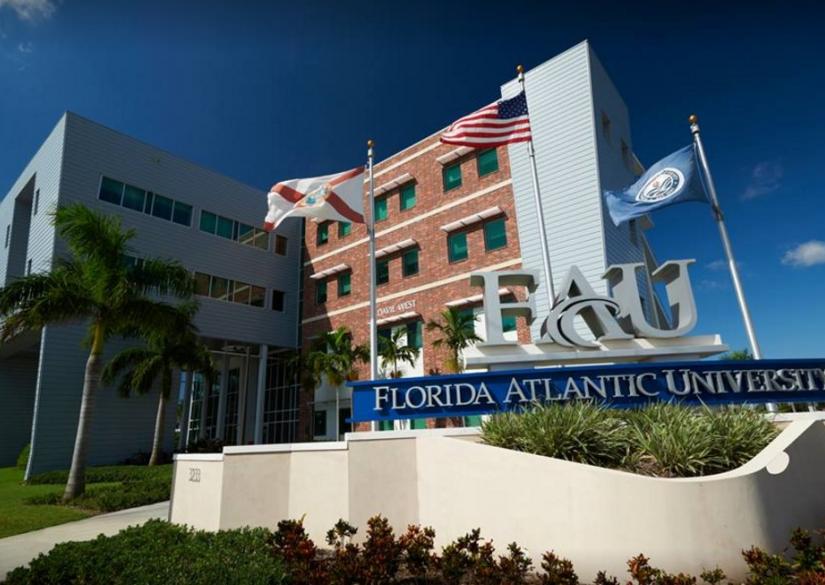Welcome to the February edition of A Capitol View!
It’s an especially dynamic period in the nation’s capital, as the Trump administration and Republican-controlled Congress move aggressively to make historic changes that shrink government and redirect national priorities in domestic and foreign policy.
The reforms will likely face fierce resistance from across the aisle and are already the focus of a raft of court challenges.
SMI is on the front lines of the fast-moving developments, helping clients navigate the shifting winds and seize upon new opportunities on the horizon to tackle the nation’s challenges and advance bipartisan priorities.
Here’s the latest snapshot of the firm is tracking, and some highlights of client achievements.
SMI SPOTLIGHT
 REINFORCEMENTS: We are thrilled to welcome Nichole Vivanco-Stapleton to the SMI team as an analyst.
REINFORCEMENTS: We are thrilled to welcome Nichole Vivanco-Stapleton to the SMI team as an analyst.
Nichole is a graduate of the University of Virginia Frank Batten School of Leadership and Public Policy, where her research included how artificial intelligence is reshaping defense strategies.
Nichole, who holds Bachelor of Arts degrees in Public Policy and Leadership and Economics, is supporting SMI’s clients with research and analysis on defense policy issues.
EXECUTIVE BRANCH
POWER OF THE PURSE: President Trump’s top team is settling into place, and the focus has turned to what’s in store for government spending and the size of the federal workforce.
The administration’s effort to cut or reimagine a host of federal agencies – from curtailing funding provided by the National Institutes of Health and the Department of Energy, to shuttering most of the U.S. Agency for International Development – has set up a clash with the legislative branch over the power of the purse.
Not so fast: In the meantime, federal courts have temporarily blocked numerous administration moves, including the NIH funding cuts, a broader federal funding freeze, and the firing of inspectors general, the independent watchdogs at executive branch agencies. Find a useful court case tracker here.
Leading bipartisan voices in Congress, meanwhile, are also signaling they plan to have a major say when the House and Senate tackle annual appropriations and authorization bills for executive agencies in the coming months, exercising the spending authority of the legislative branch as enshrined in Article I of the Constitution. Some are raising concerns that the administration could be going too far.
Axe wielding: All eyes are on White House Office of Management and Budget chief Rusell Vought, who has returned to the Trump White House for a second stint, where he is expected to try to execute an aggressive effort to cut federal spending and workers when Trump offers his first full budget blueprint to Congress in the spring.
SMI is also assessing the evolving impact of other Trump policy moves that could affect our clients, including the latest decision to impose a 25 percent tariff on all imports of steel and aluminum, which is getting strong international pushback.
CONGRESS
 DOUBLING DOWN: The Trump administration and GOP-led Congress are clearly setting ambitious goals for reducing the federal budget, including reviewing Department of Defense programs. But defense spending and border security activities are also in line to get a major boost, as they did in Trump’s first term.
DOUBLING DOWN: The Trump administration and GOP-led Congress are clearly setting ambitious goals for reducing the federal budget, including reviewing Department of Defense programs. But defense spending and border security activities are also in line to get a major boost, as they did in Trump’s first term.
As part of a so-called budget reconciliation package that is now working its way through Congress, that could include a proposed additional $150 billion for defense and $175 billion for homeland security over the next two years – paid for, at least in part, by potentially steep cuts elsewhere.
Priority areas: The SMI team is hearing some relevant priorities will include the Trump administration’s proposed Iron Dome for America anti-missile and anti-drone shield, more Navy and Coast Guard ships, nuclear weapons, space systems, munitions production, and strengthening supply chains for critical minerals.
We also expect to see extra funding shaped by proposed legislation to invest in shipbuilding and missile defense, and to reform the weapons acquisition system.
They include: the Fostering Reform and Government Efficiency in Defense (FoRGED) Act, from Senate Armed Services Committee Chair Sen. Roger Wicker, the bipartisan Shipbuilding and Harbor Infrastructure for Prosperity and Security (SHIPS) for America Act, and the new Increasing Response Options and Deterrence of Missile Engagements (IRON DOME) Act put forward by SMI Director Celia Morte’s former boss, GOP Sen. Kevin Cramer and Sen. Dan Sullivan.
Go deeper: SMI client Charles Beames, head of the SmallSat Alliance, outlined a recipe for success for the Iron Dome proposal in a recent op-ed in Breaking Defense: The secret to delivering Trump’s Iron Dome program.
Shutdown showdown? The government still needs to get a fiscal 2025 budget passed. A continuing resolution for the current fiscal year runs out March 14 and jockeying could lead to a government shutdown or a year-long continuing resolution that would spell delays for a host of new government programs.
FOR YOUR RADAR: Don’t miss SMI client Govini’s Defense Software & Data Summit on Feb. 26 in Washington, the premier event dedicated to transforming defense acquisition into a strategic advantage for the United States.
This year it will unite leaders from government, industry, and academia, including Army Chief of Staff Gen. Randy George, Gen. James Rainey, head of Army Futures Command, Defense Logistics Agency Director Lt. Gen. Mark Simerly, Rear Adm. Todd Weeks, program executive officer for strategic subs, former Rep. Mike Gallagher at Palantir Technologies, Troy Dremmer at Gecko Robotics, James Rebesco at Striveworks, and many more.
MANUFACTURING
 CONVENING AUTHORITY: From energy storage and microelectronics to footwear and forging, SMI continues to help shape government policies that are boosting domestic industries critical to our economic competitiveness, technological edge, and national security by convening key stakeholders.
CONVENING AUTHORITY: From energy storage and microelectronics to footwear and forging, SMI continues to help shape government policies that are boosting domestic industries critical to our economic competitiveness, technological edge, and national security by convening key stakeholders.
For the second year in a row, SMI hosted the invite-only Advanced Materials Summit, in partnership with the Office of the Secretary of Defense and Cerion Nanomaterials, titled “Accelerating the Pace of Discovery and Deployment of Advanced Material Systems for Global Competitiveness in the 21st century.”
We convened senior defense officials, industry leaders, and technical experts to devise new pathways for transitioning novel functional materials more quickly and cost-effectively for defense systems. The presentations and discussions tackled directed energy, microelectronics, quantum computing, and renewable energy generation and storage, as well as strategies for infusing new private capital into the most innovative companies.
‘Maximum potential.’ “Without the ability to transition materials quickly and manufacture them to scale affordably, we may be limiting our systems from reaching their maximum potential,” SMI COO Ken Wetzel said at the invite-only event. “We are grateful for the collaboration with the Office of the Secretary of Defense to put on this event and know that we’ve assembled the right group of experts and thought leaders to help move the needle for materials transition.”
‘FRESH PERSPECTIVE’: SMI also organized the United States Advanced Ceramics Association’s annual Composites, Materials and Structures conference.
On hand were reps from the Navy, Air Force, Army, Missile Defense Agency, NASA, the Defense Advanced Research Projects Agency, the FAA, Department of Energy, engine manufacturers, missile and aircraft makers, commercial space companies, and material and component suppliers
A major theme was workforce development, including scholarships for students to attend. “I connected with so many inspiring professionals, and as I near the end of my studies, learning about their career paths and the different opportunities available has given me a fresh perspective on my own next steps,” said Gemma Ponce, an engineering major at USACA member Colorado School of Mines.
FORGING AHEAD: SMI’s Strategic Communications practice also organized a fact-finding trip for the defense trade press and industry analysts on behalf of the Forging Industry Association (FIA) to Wisconsin and Illinois to help educate key influencers on the critical role the industry is playing in sharpening America’s military deterrent.
A major thrust was learning about opportunities for the military and its prime contractors to tap into underutilized forging and casting capacity, clear choke points with smarter acquisition policies, and improve communication up and down the supply chain.
The plant tours and discussions offered invaluable insights and varied perspectives on how to fire up an industry that is more important than ever as demands grow for more warships, submarines, icebreakers, hypersonic missiles, and more.
‘Incredibly enlightening’: “It was incredibly enlightening to understand the industry,” said retired Army Col. Wayne Sanders, Bloomberg Intelligence’s Defense Weapons Analyst and former chief of staff to the Undersecretary of Defense for Research and Engineering.
Among the takeaways, he added, were “the importance of material sciences and how they play into different finalized products,” as well as “the chokepoints for military production” and how “the long lead time for production orders and translation of requirements from DoD to either the primes or to the forgers slows the process.”
SMI’s lobbying team also hosted FIA’s Lobby Days in Washington this month, where executives from a range of companies met with members of Congress and professional staff to build support for modernizing the forging industry.
The dessert: Our strategic comms practice also recently organized a salon dinner and discussion for the FIA team on the forging industry’s capacity to support the defense industrial base, which hosted reps from the Office of the Secretary of Defense, the U.S. Army, General Dynamics, the Center for Strategic and International Studies, and a number of forging houses.
POWERING UP: The BATT Coalition (Battery Advocacy for Technology Transformation), which SMI launched in August 2024, has emerged as a leading voice for expanding domestic production of materials and components for electric batteries for defense, transportation, and energy systems.
Most recently, it enlisted a slew of innovative companies with operations across the country in calling on bipartisan leaders in Congress to swiftly enact tax reforms that protect the domestic battery supply chain from Chinese market manipulation and close loopholes that hamper efforts to build sustainable domestic production capacity.
Specifically, BATT outlined the need to amend the Advanced Manufacturing Production Credit (45X) and the Qualified Commercial Clean Vehicle Credit (45W) to include the stricter domestic sourcing requirements that are similar to those contained in the 30D Clean Vehicle Credit (30D). These measures will help ensure the closure of loopholes that are currently allowing U.S. taxpayer dollars to fund Chinese materials and market development.
Bigger footprint: BATT is also steadily adding new members, including EnergySource Minerals; Entegris; Factorial Energy, Forge Nano, Inc., Lyten; SPARKZ Inc., and Standard Lithium.
BATT in the news: Coalition of 14 battery materials companies is wading into the tax debate
Plus: China defends battery export controls; analysts see more than retaliatory motivations
 BEST FOOT FORWARD: Next up, in March SMI will be spearheading the United States Footwear Manufacturing Association’s annual Spring Meeting in Washington.
BEST FOOT FORWARD: Next up, in March SMI will be spearheading the United States Footwear Manufacturing Association’s annual Spring Meeting in Washington.
Manufacturers and suppliers from across the country will discuss the critical issues impacting the domestic footwear industry and huddle with lawmakers and other decision makers to expand bipartisan support for policies and investments that will keep the industry’s resurgence going and growing, including by outfitting the U.S. military with “Made in America” boots.
SMI’s strategic communications practice also recently launched a quarterly newsletter, Sole Source, for the advocacy group.
INTERNATIONAL
‘INVALUABLE INSIGHT’: SMI is proud to be the newest corporate member of the Swedish-American Chambers of Commerce as we build more partnerships to fuel the transatlantic industrial base and strengthen our collective economic and national security.
“With our expertise in innovation, science, and entrepreneurship, we’re looking forward to fostering collaboration, driving creative solutions, and empowering businesses to thrive in the U.S. market,” said SMI VP Maria Bowie. “Additionally, we aim to serve as a resource for Swedish companies that are looking to expand in the U.S.”
She added: “With our deep knowledge of legislative and executive branch processes, we provide invaluable insight on funding and policy questions, particularly in the health, defense, and energy sectors. The new administration brings plenty of opportunities, and we’re excited to see where these developments will take us.”
‘Pivotal role’: In announcing the new partnership, the chamber said: “SMI is poised to play a pivotal role in strengthening US-Sweden business ties, and we look forward to seeing the innovative partnerships that will emerge from this collaboration.”
The development comes on the heels of SMI joining the Norwegian-American Defense & Homeland Security Industry Council.
RESEARCH
 ‘POWERFUL CATALYST’: Congratulations to SMI clients Florida Atlantic University, University of Massachusetts Lowell, and Worcester Polytechnic Institute for being designated by the Carnegie Classification of Institutions of Higher Education as R1-level research institutions, denoting their elevation to a top-tier research university in research spending and doctorate production each year.
‘POWERFUL CATALYST’: Congratulations to SMI clients Florida Atlantic University, University of Massachusetts Lowell, and Worcester Polytechnic Institute for being designated by the Carnegie Classification of Institutions of Higher Education as R1-level research institutions, denoting their elevation to a top-tier research university in research spending and doctorate production each year.
The designation requires two criteria: $50 million in research and development spending and the award of at least an average of 70 research doctorates.
FAU: “The R1 designation is a highly coveted achievement in the collegiate world, symbolizing the pinnacle of research excellence,” said FAU President Stacy Volnick.
“This designation is more than just a title; it serves as a powerful catalyst for transformation, opening doors to major donors and research grants that will elevate our institution’s capabilities and reach.”
UMASS Lowell: “Research 1 status reflects UMass Lowell’s unwavering commitment to research excellence and innovation, a milestone achieved through the hard work and dedication of our faculty, staff and students,” said UMass Lowell Chancellor Julie Chen. “This recognition underscores the significant research advancements happening at UMass Lowell and our commitment to creating new knowledge, driving innovation and inspiring discoveries that serve not only our areas of interest but our community and the Commonwealth of Massachusetts.”
WPI: “This recognition is a real accomplishment for our entire community, especially our talented faculty members, students, and staff, who have demonstrated their excellence and commitment to high-impact research and innovation,” said Grace Wang, WPI president. “WPI’s research is expanding knowledge, enabling new solutions, and enriching the education of our students. I am thrilled to see WPI recognized nationally for its research achievements.”
SMI is proud to support some of the nation’s premier research universities that are developing the next-generation technologies and therapies that will advance our economic competitiveness and national security and improve millions of lives.
New roles: UMASS Lowell also inked a new partnership with Hanscom Air Force Base will transition new technologies, training, and intellectual capital into the areas of command and control, communication, battle management, cyber operations, electronic and information warfare systems, and digital infrastructure.
Chen was also appointed by Governor Maura Healey to the newly rebooted Massachusetts Military Asset and Security Strategy Task Force, which is dedicated to expanding military missions, spurring job creation, and protecting the economic investments in the state’s six military bases.
Read more: FAU Joins the Nation’s Most Elite Research Universities and Colleges
Plus: UMass Lowell Achieves Top R1 Classification for Research Activity
And: WPI Attains Designation as an R1 Research University
CLIENTS IN THE NEWS
The back story of America’s loss of dominance in steel production





